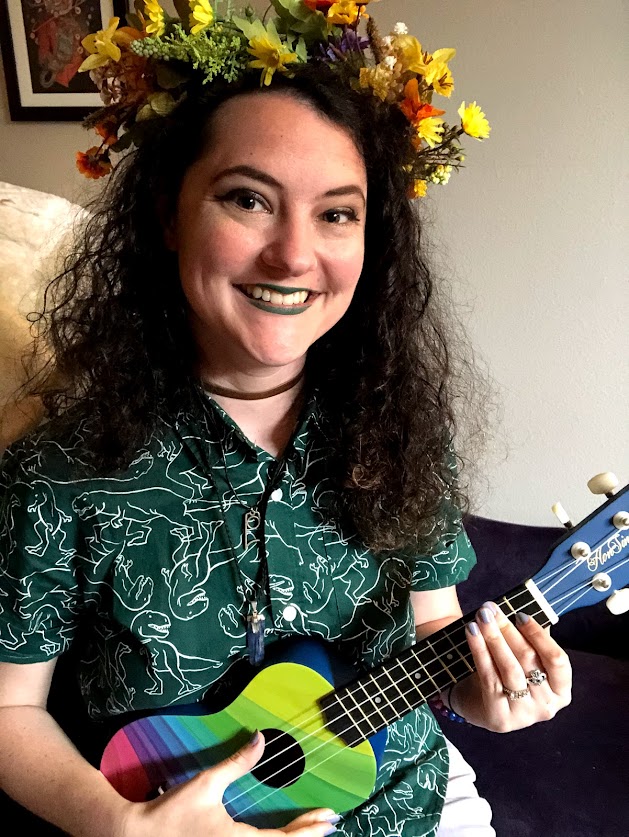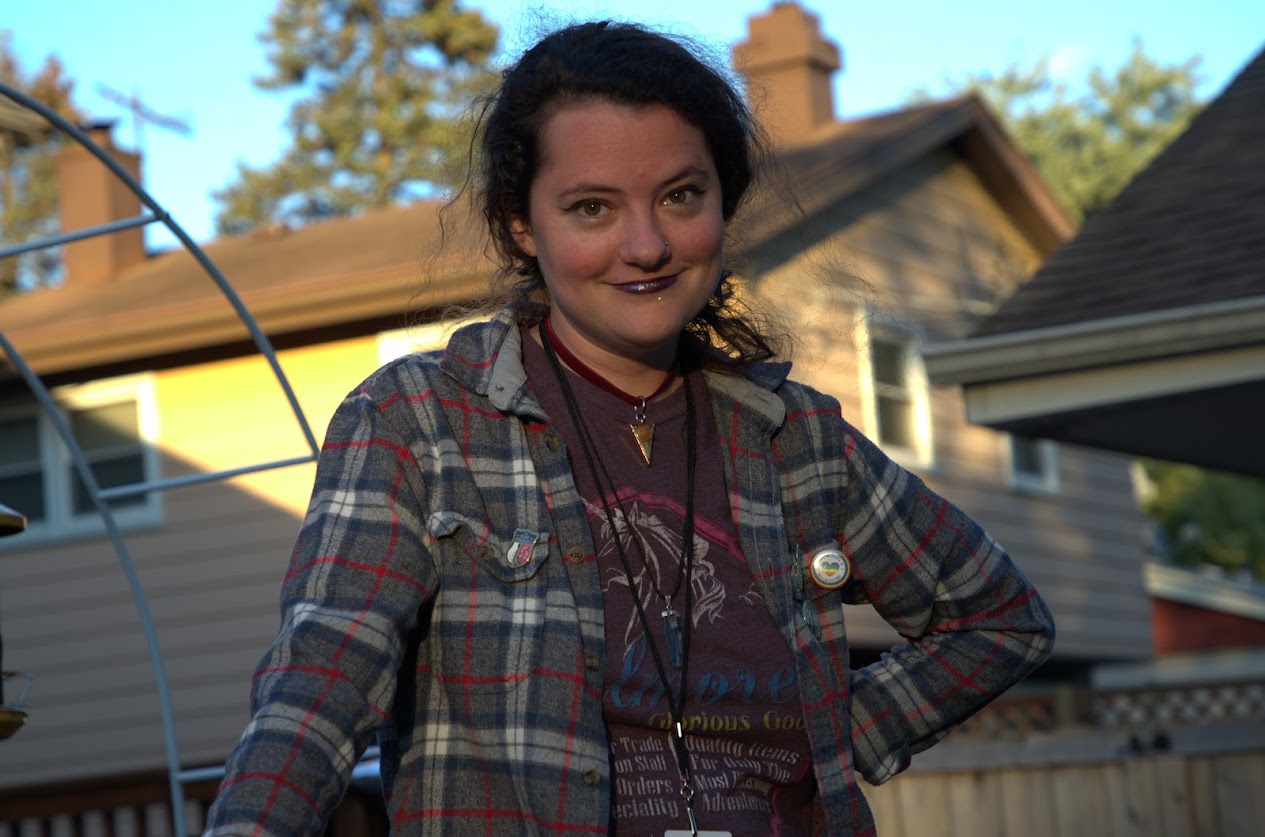Tomorrow Will Be Better: On Queer Pride as a Disabled Person
by Blog Writers
Pride. The word holds a multitude of meanings: a protest; the month of June; the opposite of shame. It pulses with promise, a single syllable standing in for so much history. It captures our most closely-treasured hopes as queer, disabled people: today will be good. Tomorrow will be better. I matter. I exist.
As a queer, disabled person reflecting on Pride this month, I’m struck by how much Pride resonates with me as a process rather than a discrete event. Maybe it’s because we’ve spent every June since 2020 in a state of COVID emergency, which still curtails many of us from fully participating in public festivities. Maybe it’s because of the infuriating disjuncture between corporations who sponsor parade floats in summer while funding bigots and transphobes’ political campaigns come winter. Maybe it’s because as I get older and read more about queer history, I think of Pride not as the final destination on a linear arc of history, but as something messy, organic, vitally necessary. Maybe it’s because this year is the first time I can say, with my whole chest, today will be good. Tomorrow will be better. I matter. I exist.
It wasn’t always this way. I didn’t always know I was queer, and I didn’t come into my disabled identity until adulthood. Coming out is a process I’ve heard used to describe sharing both these identities — queer and disabled — with yourself and your community. It’s not an all-or-nothing state of being: most people know (or can deduce pretty quickly) I’m queer, but few people know I’m disabled unless I tell them or I’m using a mobility aid that day. Likewise, most people don’t know my gender (nonbinary/genderqueer/genderfluid) or pronouns (she/they) unless I’m wearing a visible marker, like a pronoun button. While no individual fits the entire stereotype of queerness or disability, I would hazard a guess that I’m not the only one who, in comparing myself to the stereotype, has wondered, do I count? Am I queer enough? Disabled enough? Or am I a fraud?
Our human brains like things to be straightforward and easily categorized. It helps us make sense of the world. Pride — in our queer, disabled selves — gives us space to imagine life beyond, outside, across these categories. There’s a saying I’ve heard in both the queer and disabled communities that goes, “if you’re wondering a lot about whether you count as queer or disabled, chances are you probably are.” Or, as I put it to a fellow genderqueer friend when they came to me to share they were questioning their gender, “cis people don’t fret about gender.”
Concepts like queer pride and Crip time let us fashion ourselves, not as exceptions to an ableist, heteronormative and cisnormative environment, but as the beautiful creatures we are. Pride lets us come as we are. Pride situates us not as exceptions or anomalies, but as the interdependent, interconnected beings we are. With so much pressure on us to conform, either to the societal default of whiteness, cis-ness, heteronormative, non-disabled, or to that society’s stereotype of what a disabled person must look like, be, or do, Pride offers us a powerful repudiation of that mandate.
Both the queer and disabled communities are no strangers to legislative attack, social stigma, and everyday humiliations. Pride happens when we say, no, I’m not what you think I am. It’s not me who doesn’t fit into the wider world. It’s the world which insists on describing me incorrectly, and that needs to change. Pride happens in the hashtags like #DisabledAndCute, #AmbulatoryWheelchairUsersExist, and #BlackTransLivesMatter. Pride occurs where we strike a balance between dismantling the dominant narratives that seek to pigeonhole us, and creating and celebrating the joyful possibilities of queer crip stories and spaces. Pride is a conversation, a dialectic between who we are and the most cherished desires of our hearts. It’s astonishing to me that we celebrate this for one month instead of all year round!
The world is filled with countless, everyday injustices against queer disabled people, and I see this all too frequently in the way these two communities — queer, disabled — seek to separate from each other, to disavow those of us who are both from full participation in either. Pride is an antidote to that. Pride is disability justice; disability justice is Pride. It’s in the cooperation between the Black Panthers, disability rights organizers, and nondisabled allies during the 504 Sit Ins. It’s ASL interpretation at drag shows. It’s plastic straws and free condoms and ramps without asking. It’s queer-inclusive, accessible sex education in schools so kids like I was don’t have to grow up without basic vocabulary to describe our existence. It’s continuing to fight for marriage equality so that disabled people can marry our partners without losing the healthcare and financial support we need to stay alive and remain in the community. A parade once a year is certainly a fun visual signifier of how far we have come, but Pride invites us to imagine and demand so much more.
This June, I want us all to remember that Pride is not an endpoint or an achievement. It is not a rainbow product you can buy in a store. It’s frequently loud, messy, and circuitous. It does not care about respectability as much as putting in the work. Pride is the community we find in a world which demands creative solutions from us every day. Pride does not promise us answers, but it does give us a roadmap for survival. Pride encourages us to whisper, to shout, today will be good. Tomorrow will be better. We matter. We exist.
Anna Goldberg (she/they) is a writer, editor, and geek of all trades. She is the cofounder of 6 String Games, a TTRPG micropress which publishes games from the stranger side of storytelling. She has worked with Mage Hand Press, DOTS RPG, and elsewhere making games and game-related content of all sorts.
When they’re not playing or making games, Anna is an avid cosplayer, tea drinker, and bibliophile. They are the co-founder of the Disability Readathon, a semi-annual event dedicated to celebrating books and media created by disabled authors. They also do disability advocacy and consulting for games, cosplay events, and other geeky endeavors, promoting inclusivity and access for all.
Anna resides in the Pacific Northwest, in a bog witch’s dwelling she shares with her husband and their two dogs.
Find Anna at @nymeria941 across social media.









